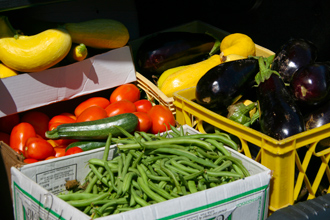
Mauricio Chenlo, Mennonite Mission Network, raleighumd@nc.rr.com
Director of Hispanic Church Planting Academy and Church Planting Coach
In my role as a church planting resource person and director for the Hispanic Church Planting Academy run by Mennonite Mission Network (MMN) in partnership with the Iglesia Menonita Hispana, I meet with church planters and church planting teams all across Mennonite Church USA. My assignment is to empower leaders to grow in their call to expand God’s kingdom through different church planting and leadership development efforts.
As far as I know, neither the denomination nor any of the conferences within the United States has a programmatic master plan for church planting. Church planting within the U.S. has naturally emerged among Racial/Ethnic groups (e.g., Hispanics, Asians). My focus has been to get to know a variety of ordinary believers in different parts of the country who are planting churches or who want to start thinking about planting churches.
I have learned that church planting is less of a programmatic, intentional process and more of a relational, unstructured experience. In our seminars we look at the church planting process and how Jesus developed a group of believers challenged to be apostolic. It reminds me that efforts to plant churches are normally grounded in how ordinary Christians respond to the call to spread the good news.
 Church and mission agencies often seem to think that experts who design master plans and deliver the latest strategies are the ones who create ministries. The opposite seems to be true for us. Church planters normally do not receive their sense of call from a highly structured denominational master plan. They get their call from seeing the harvest and receiving a clear call from God. This is precisely what we seek to cultivate.
Church and mission agencies often seem to think that experts who design master plans and deliver the latest strategies are the ones who create ministries. The opposite seems to be true for us. Church planters normally do not receive their sense of call from a highly structured denominational master plan. They get their call from seeing the harvest and receiving a clear call from God. This is precisely what we seek to cultivate.
Instead of attempting to deliver the latest resources created by “experts,” we strive to nurture the call to church planting among people sensing that call by looking at key components of the church planting process: Growing faith where life is happening; the Apostolic dimension; how Jesus developed a group of leaders that responded to the call; the New Testament church planting method; different people; and different models.
I believe transformation begins with the smallest of seeds and grows by the power of God’s Spirit and the work of believers who respond to God’s call.
People need to be reminded that God wants to use them for Kingdom purposes. When we communicate that you need expertise and formal theological education before you can serve God, the learning process can get complicated and mission can be stifled. But people are empowered when they understand that God’s work is not limited to experts, that it is open to all believers who are willing to serve. They get excited when they dwell in the Scripture and allow God’s Spirit to open their eyes to the surrounding realities.
I am becoming more of a cultural broker and mediator for God’s reconciling purposes as I bring people together from different cultures and backgrounds. My desire is to nurture two key activities among God’s people: Listen carefully to what God is calling you to do and serve the people God sends you to and the people God sends to you.
I am often asked what it will take to get a new generation of believers to discover the need to begin churches. Instead of large scale strategies, we simply need to disciple new converts with the notion that there is nothing more exciting for a new believer than to tell someone else how the good news of Jesus Christ has become real in his or her own life.
In a healthy church plant, passion always precedes structure. As a result, church planting will look different in different age groups, in different ethnic groups, and in different regions of the country. What it will not change are the Lord’s purposes for the church and for our world.
Church planting is not the work of “experts.” It is about believers who have a passion to see people come to Christ. Church planting is about leaving your comfort zone and engaging in divine conversations and opportunities to serve the world. It is about understanding that we are not called to fix the world but to model a new society. Truth and justice are possible. Church planting is about a life-style that expresses God’s love for the world!
The opinions expressed in articles posted on Mosaic’s website are those of the author and may not reflect the official policy of Mosaic Conference. Mosaic is a large conference, crossing ethnicities, geographies, generations, theologies, and politics. Each person can only speak for themselves; no one can represent “the conference.” May God give us the grace to hear what the Spirit is speaking to us through people with whom we disagree and the humility and courage to love one another even when those disagreements can’t be bridged.
